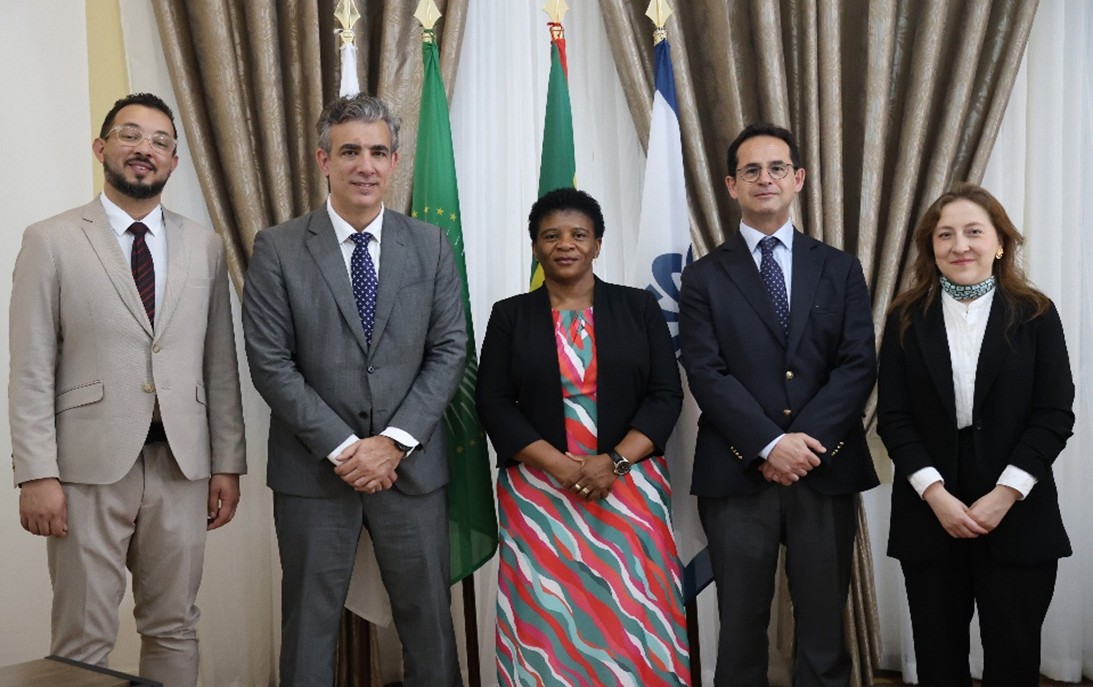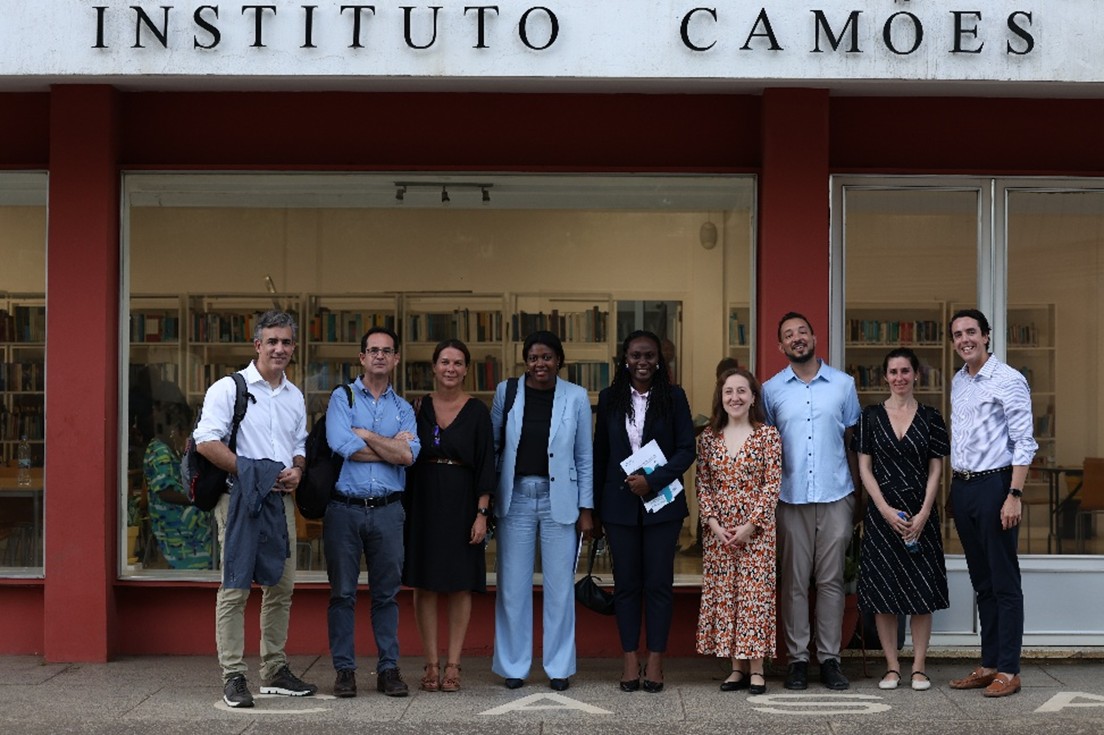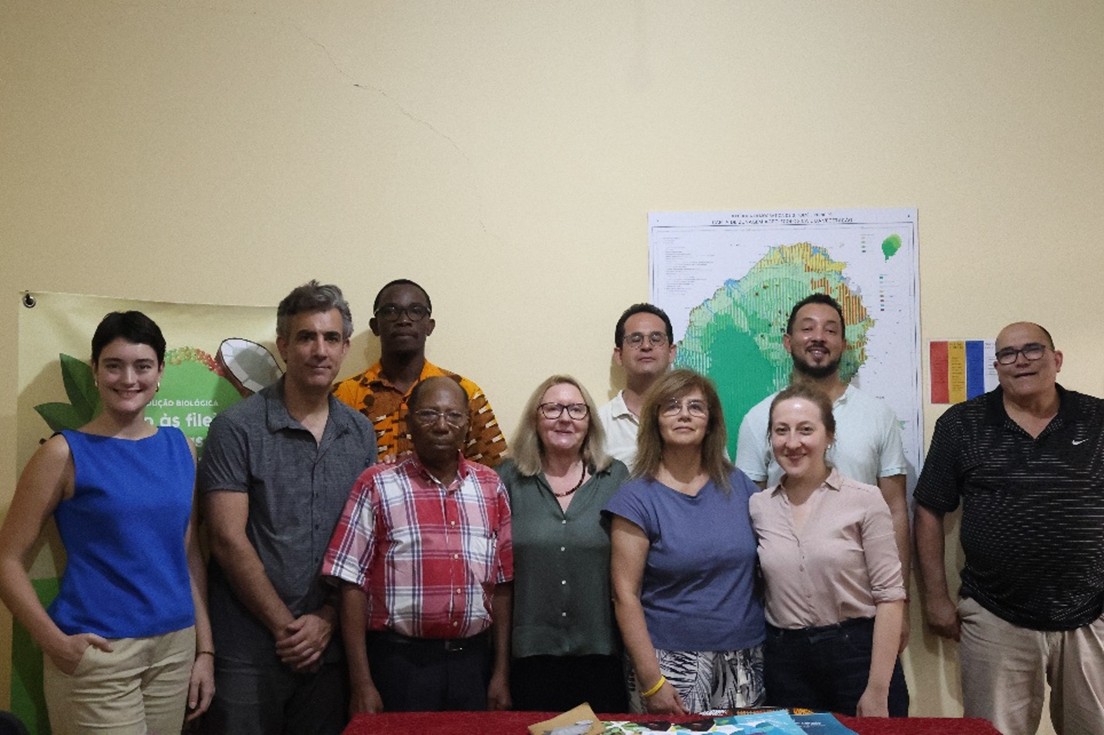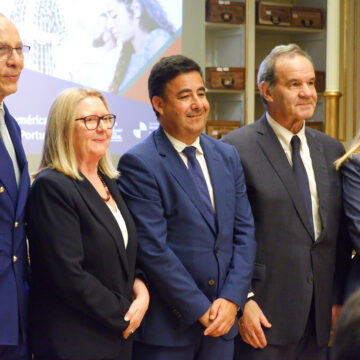SEGIB visits São Tomé and Príncipe in the framework of two projects of the Portugal, Latin-America and Africa Triangular Cooperation Fund
The objective was to make a field visit to promote an improved Triangular Cooperation (TCr) between Ibero-America and other developing regions.

Between April 28th and 30th, a delegation of SEGIB visited São Tomé to follow-up on the progress of two projects promoted by the Portugal, Latin-America and Africa Triangular Cooperation Fund. One is based on the importance of cocoa as a driver of sustainability and climate resilience; and the other focuses on the digital transformation of the island of Príncipe. This activity was part of the SEGIB-Portugal Triangular Cooperation Fund: Sharing the Ibero-American Experience with the Global South, approved in the framework of the memorandum signed between SEGIB and Camões I.P., in 2023.
The SEGIB-PALOP exchange responds to the need to strengthen Triangular Cooperation between Ibero-America and Portuguese-speaking African Countries (PALOP by its Portuguese acronym), promoting mutual learning and sharing best practices. Given that the projects financed by the SEGIB-Portugal Triangular Cooperation Fund will be fully implemented during 2025, this technical visit provided an on-site insight of the progress, challenges and achievements made so far, specifically in two of the six initiatives that were approved. In addition, this activity contributed to consolidate institutional cooperation between SEGIB, Camões and the implementing institutions, with a view to improving the management of future similar initiatives.
The main objective of this visit was to generate a two-way exchange of experiences in the framework of Triangular Cooperation between Ibero-America and Africa. Knowledge was shared on the management, implementation and administration of projects in this modality, allowing for a collaborative reflection on the impact of TrC and its potential to be replicated.

Specifically, during the first day, SEGIB met with the Ambassador of Portugal in São Tomé, Luis Leandro da Silva, and the Minister of Foreign Affairs, Cooperation and Communities of São Tomé and Príncipe, Ilza Amado Vaz. “These two projects will enable us to promote knowledge exchange with other countries and boost cooperation between São Tomé and Príncipe and Ibero-American countries. South-South and Triangular Cooperation is important as it brings countries together to help each other”, said the Minister after the meeting.
In addition, the delegation had the opportunity to meet the focal points of the implementing institutions, specifically the coordinator of the project Triangular Alliance for the Digital Transformation of Principe, which is carried out by the Institute for the Promotion of Latin-America and the Caribbean (IPDAL by its Portuguese acronym; Portuguese partner), the Open and Digital Country Foundation (Argentine partner), and the authorities of São Tomé and Príncipe (PALOP partner). One of the relevant aspects conveyed to SEGIB was that this initiative has indeed responded to the principle of equality and horizontality promoted by TCr, as all stakeholders have been involved since the beginning.
SEGIB also had meetings with authorities of the Association Marques del Valle de Flor (AMVF by its Portuguese acronym; Portuguese partner), the Amazonian Institute of Scientific Research (Colombian partner), the cocoa cooperative CECAQ-11, and the International Center for Tropical Agriculture (CIAT), as well as other partners in São Tomé and Príncipe. A visit was also made to one of the cocoa farms where the project Cocoa bioagrodiversity for environmental conservation and climate resilience is being implemented, in order to meet all the stakeholders that are involved in this initiative, which seeks to contribute to the mitigation of climate change and the valorization of biodiversity, through the promotion of tropical agroforestry systems, with emphasis on cocoa.

One of the most distinguishing aspects of this TrC Fund is that it promotes bilingualism, enabling the use of both languages (Portuguese and Spanish) and allowing a greater participation of local stakeholders, an opportunity that was confirmed by the countries that are participating in these two initiatives.

